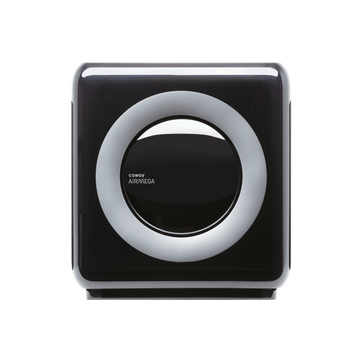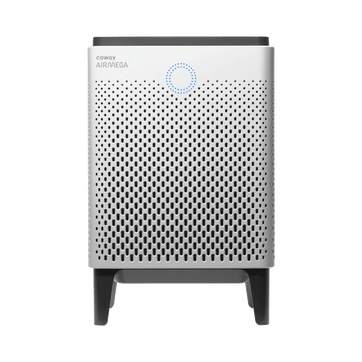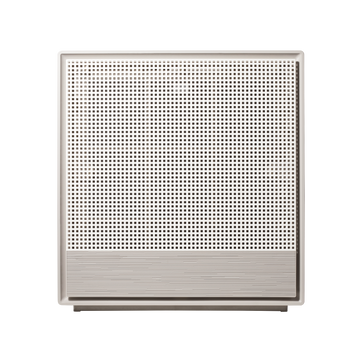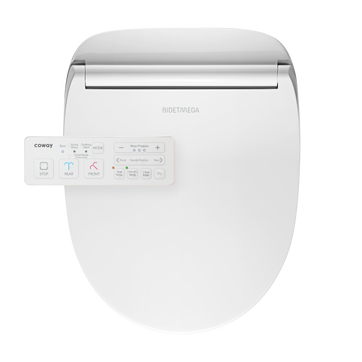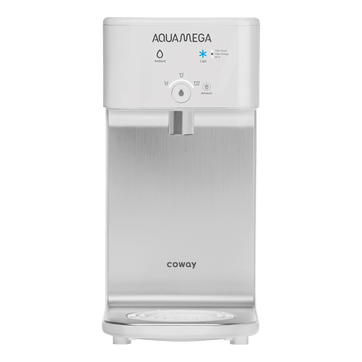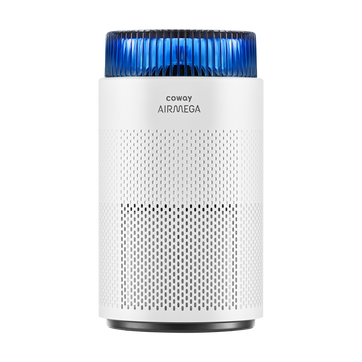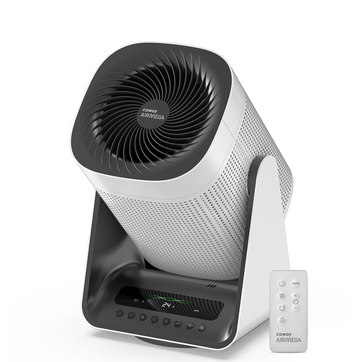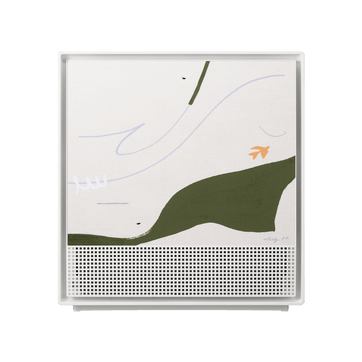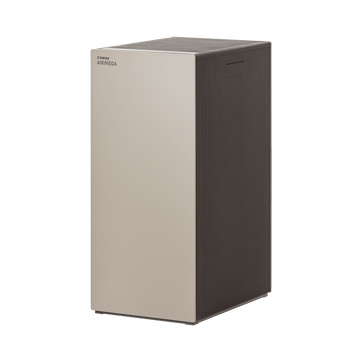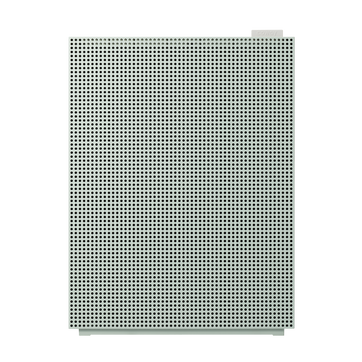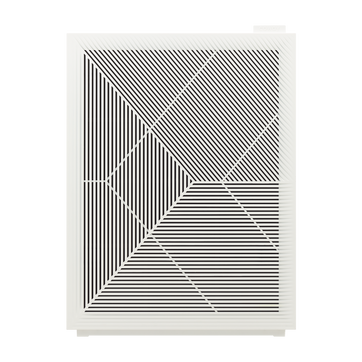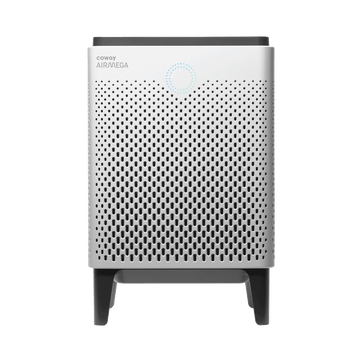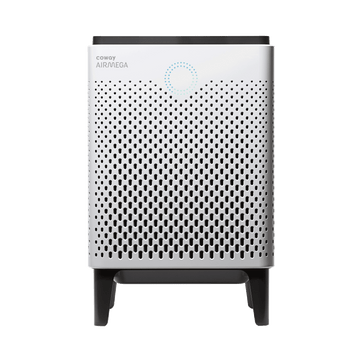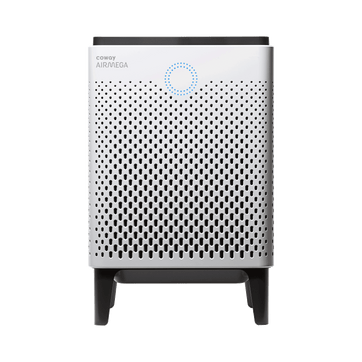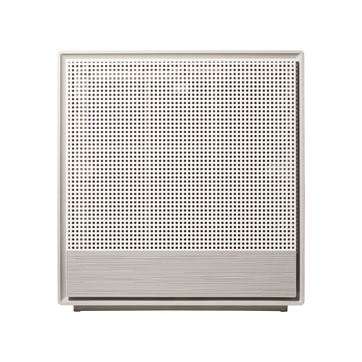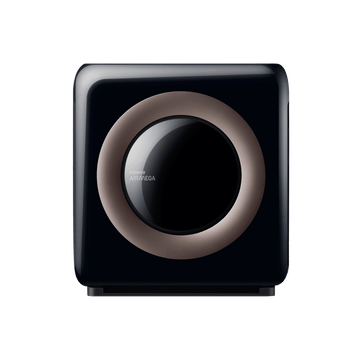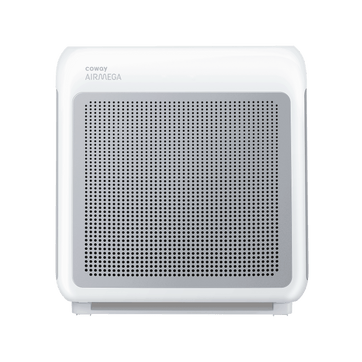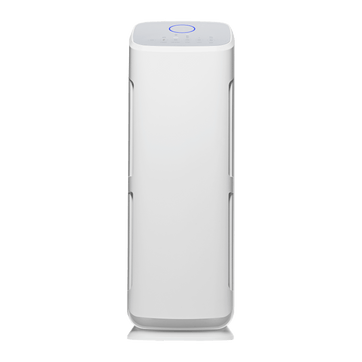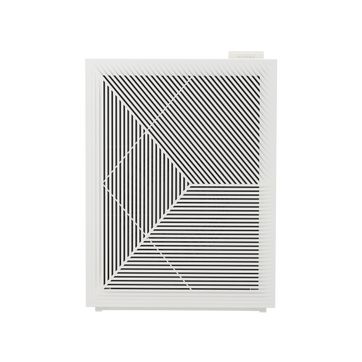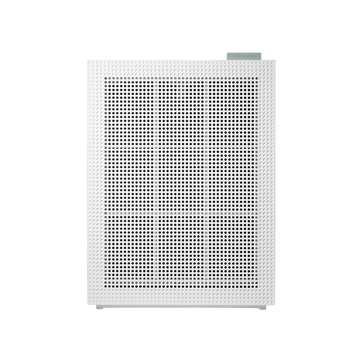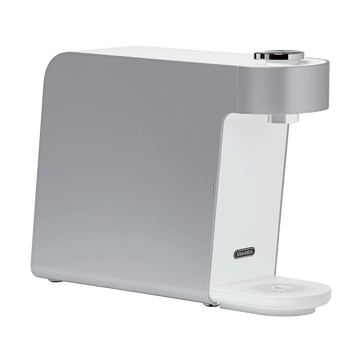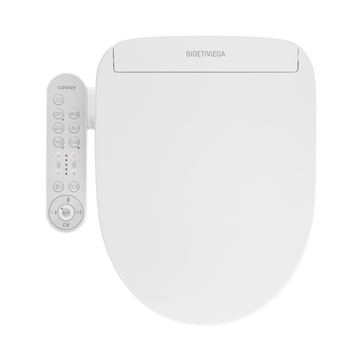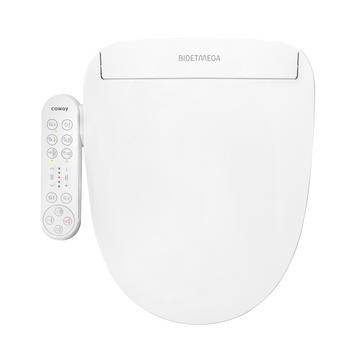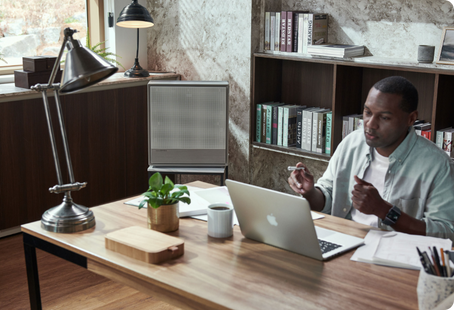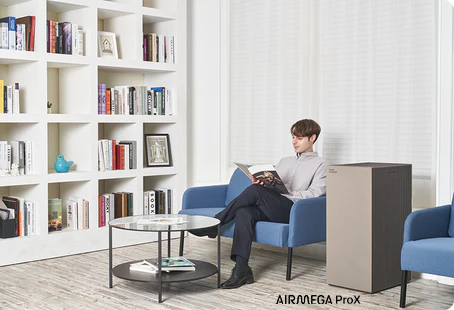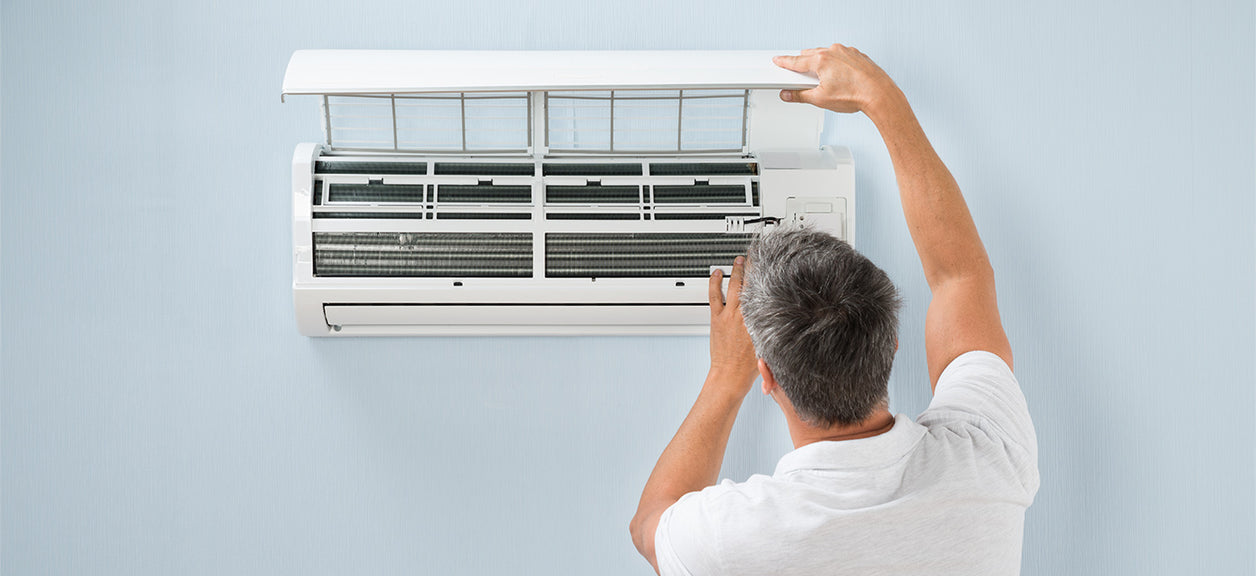
The Impact of Air Conditioning on Your Health
According to the EPA, Americans spend roughly 90 percent of their time indoors, and with the summer heat raging on through August, we often luxuriate in air conditioned rooms to stay cool. For those with respiratory problems and allergies, air conditioning is often recommended to combat symptoms, which can become more prevalent during warmer months with increased humidity. However, your air conditioner could be doing more harm than good for your respiratory health. Read on to learn more about how to stay cool and breathe deeper this summer.
How Does Air Conditioning Impact Your Health?
For those with central air conditioning systems, air filters are your friend when it comes to trapping irritants. Many home air conditioning systems contain air filters that filter out particles such as pollen and dust in your home. What you might not know is that not all air filters are alike. An air filter’s MERV (minimum efficiency reporting value) score can help distinguish its level of filtration, which may influence your decision if you are looking to trap certain types of particles in your home.
Filters with MERV scores from 1-4 are used to trap larger particles and are typically found in window air units. Most central, residential air units contain filters with ratings of 5 or higher. Filters with a rating of 5-8 are more effective at removing both small and larger particles from the air, including things such as pet dander, while filters with 9-12 ratings are able to remove particles around the size of dust. Superior filters with ratings of 13 and above are able to remove very small particles such as bacteria, smoke, and cooking oil.
How Can You Protect Your Health When Using an Air Conditioner?
Just as important as knowing your air filter’s score is ensuring your air conditioner and filter are clean. With window units, be sure to clean or replace your filter when the indicator light comes on, or per your unit’s manufacturer guidelines. For those with central air systems, be sure to have your HVAC system cleaned every three to five years, including the air filter and the ducts, as allergens such as mold and mildew can build up over time and be spread through indoor air.
Because many home air conditioning systems use filters with mid-level filtration capabilities, there is a chance that irritants may be passing through your filter and circulating through your home. The same is true for lower MERV score units, such as window units, that are unequipped to filter out medium and small particles. In these cases, having an air purifier with a HEPA air filter, such as Airmega, to capture smaller particles is a great way to ensure you’re breathing clean air this summer and all year-round.
Learn more expert tips on Coway's blog.
Disclaimers
1Coway air purifiers have been proven to trap dust, pollen, dander, viruses and bacteria in the air based on KCL (Korea Conformity Laboratories) testing.They have been tested in a 30㎥ size chamber according to the Korea Air Cleaning Association standard (SPS-KACA 002-132:2022 Modified) to measure the 0.01㎛ size of particle removal rate. It was tested on maximum airflow speed in normal room temperature and humidity conditions. The performance may vary in the actual living environment of customers.
→ Tested with Airmega Aim, 100, 150, 160, AP-1216L, AP-1512HH, AP-1512HHS, 200M, Icon, IconS, 230, 240, 250, 250 Art, 250S, 300, 300S, 400, 400S, ProX
299.97% of viruses, bacteria, fungi and pollen were verified to be removed from the air for Coway air purifiers which have Green True HEPA™ filter applied based on the Japan Food Research Laboratories(JFRL) testing according to JEM 1467 standard.
→ Tested with Coway Airmega AP-1512HH, AP-1512HHS, 250, 250 Art, 250S, 300, 300S, 400, 400S
→ All tested by JFRL and received above result within below time.
All tested by JFRL and received above result within below time.
- Virus: Tested with Escherichia coli phage ΦX174 NBRC 103405, 60 minutes
- Bacteria: Tested with Staphylococcus epidermidis NBRC 12993, 60 minutes
- Fungi/Mold: Tested with Penicillium citrinum NBRC 6352, 60 minutes
- Pollen: Tested with Cedar Pollen extract, 60 minutes
3Aerosol test conducted in a Biosafety level 3 laboratory with two Coway air purifier models, Coway Airmega 250 and 400 for removal of SARS-CoV-2 Aerosol by US based MRI Global, a not-for-profit laboratory and partner of US Department of Defense. The test was conducted in a 13.1ft3 chamber. Virus was aerosolized for 15 minutes and the product was turned on high for 2 minutes. Result showed each product effectively removed over 99.98% of the SARS-CoV-2 in 2 minutes. This is a result from a laboratory experiment condition and result may vary in different conditions. This result does not imply it kills SARS-CoV-2 or prevents the transmission of Covid-19. Coway Airmega 250S and 400S are identical to the tested models and has equal performance with an additional mobile connectivity function.
4The concentration of ammonia, acetaldehyde and acetic acid were proven to be removed within 30 minutes by FCG Research Institute, Inc. Human Life Science Lab. It is not a demonstration result in the actual use space. Not all odors and gases may be supported. → Tested with Coway Airmega 150, 160, AP-1512HH, AP-1512HHS, 400, 400S
5The coverage area of the air purifier is based on an area where the air cleaner can make two air changes per hour (ACPH). An air change per hour translates to how many times an air purifier can clean an area, assuming the height of a ceiling to be 8 ft, in one hour. Therefore ** means two air changes per hour means that the cleaner can clean the area once every 30 minutes and * means air changes per hour means that the air purifier can clean the area once every 60 minutes.
10Terms and conditions apply. Discounts, including promotions, coupons, bundle discount and subscription discount, cannot be stacked on top of other coupons. During promotional periods, discount codes will not be able to be applied to orders. Promo codes may apply to products only—filters, accessories, and new products within 3 months of the release date are not included.
